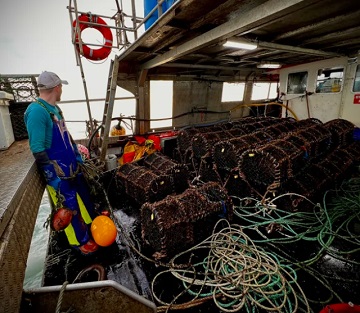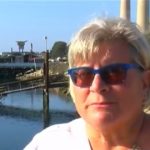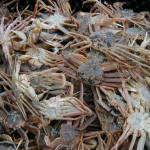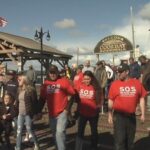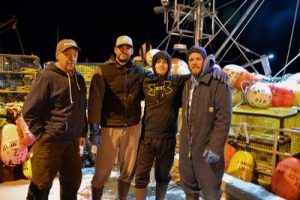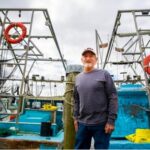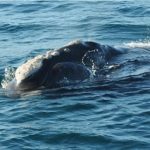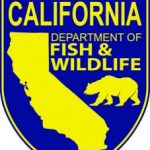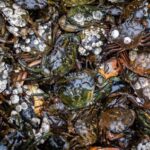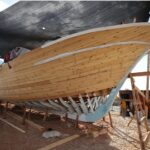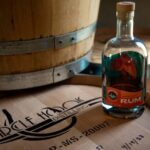Tag Archives: Defra
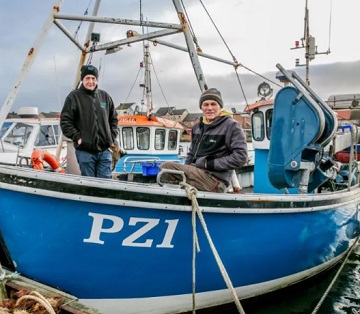
‘What about us?’
Forgotten fishermen caught in the middle of a storm over the North Sea crustacean deaths last night asked ‘what about us’, after a report into the wash-ups was published. Fishermen working off the Teesside coast have told how they’re struggling to make a living with depleted numbers of sea life following mass deaths. A fresh report into the deaths released at noon on Friday was unable to find a conclusive cause for the mass wash-ups. Hartlepool Fisherman Paul Graves said: “If my wife stopped working I would be screwed. “I used to go two miles out and would never go more than six, but now I have to go 20 miles out to have any chance of catching anything. >click to read< 10:28
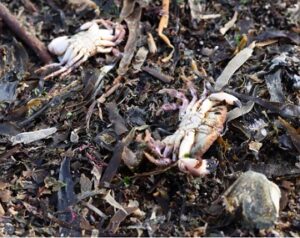
No definite answer to cause of mass crab deaths on north-east coast
Thousands of dead and dying crustaceans were found piled high along beaches along the north-east coast of England during a three month period. Research by academics, backed by the fishing industry, suggested the incident could have been caused by industrial pollutant pyridine, possibly from dredging in the mouth of the River Tees to maintain channels for port traffic. However this has now been deemed “exceptionally unlikely”. And while the panel said it was impossible to give a definitive answer using current data, it concluded on Friday that it was “about as likely as not” that a pathogen new to UK waters – a potential disease or parasite – caused the crab deaths. >click to read< 09:52
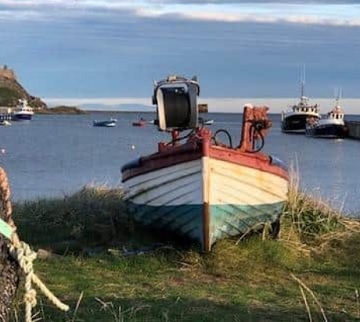
House of Lords peer calls for Holy Island fishing ban proposal to be dropped
Lord Curry of Kirkhale, who sits in the House of Lords, has written to environment secretary Thérèse Coffey to express concerns about Defra plans to designate it a Highly Protected Marine Area (HPMA). There has been strong local opposition to the proposal, backed by Berwick MP Anne-Marie Trevelyan and county councillors Colin Hardy and Guy Renner-Thompson. Lord Curry, in a letter to the secretary of state, writes: “A HMPA ban on fishing would, as Holy Island’s fishermen and residents have expressed, end a thousands-of-years-old industry which still stands at the heart of their community today.” >click to read< 09:48
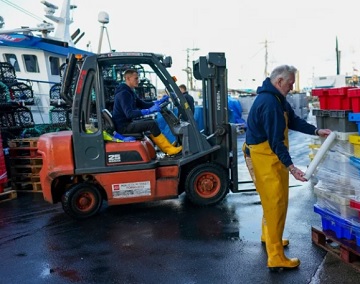
Is the freeport to blame for loss of marine life in Teesside?
The deaths of thousands of crabs on the beaches of Teesside and North Yorkshire has created bitter divisions between the fishing industry and the government. With so much disagreement over the cause, the issue has “set off a row that shows little sign of dying off”, In October 2021, crabs and lobsters began washing up dead on the beaches in the region. The beaches were “piled with hundreds of thousands of dead and dying crabs and lobster” With their catches plummeting, the fishing industry has called for financial support from the government to “save” the North East fleet in the face of the huge losses. >click to read< 11:00
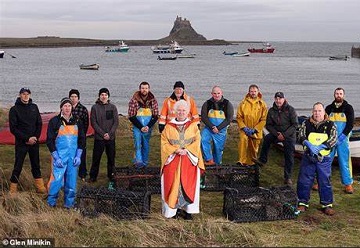
Whitehall’s eco-zealots are threatening the livelihoods of families who have fished off Holy Island for 1,000 years
Defra, the Whitehall department responsible for fishing, proposes to create a Highly Protected Marine Area of 50 square miles covering the island and parts of the nearby Farne Islands that will have the effect of banning fishing. ‘It will wipe us out and destroy Holy Island as a living and working community,’ says Shaun Brigham, 55, who has been fishing these waters since leaving school at the age of 15. ‘All that’s here is tourism and fishing – so take the fishing away and what would be left? Defra talks about ‘rewilding the sea’ but has produced no evidence that anything here needs rewilding.’ On the contrary, stocks of lobster and brown and velvet crab – which are the only sea-life that can be fished in what is already a highly regulated industry – are greater than they have been for decades, not least because it’s in the long-term interests of the fishermen to abide by strict sustainability rules. >click to read< 13:58
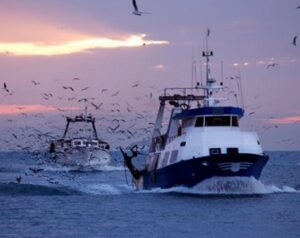
Defra announces EU fishing deal to increase fishing opportunities to £750m
Defra has announced the UK fishing industry will benefit from 140,000 tonnes of fishing opportunities next year, following the conclusion of negotiations with the EU. The deal, announced yesterday, represented a 30,000-tonne increase on pre-Brexit volumes and would present UK boats with opportunities worth over £280m in 2023 in EU waters. This brought the total value of fishing opportunities secured for the UK fleet in 2023 in the three main negotiation forums to £750m, a £34m increase from last year, Defra said. >click to read< 09:15
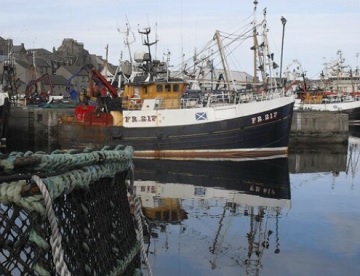
Fishing deals expected to net £750 million-plus catch for UK fleet in 2023
An earlier agreement between the UK, European Union and Norway covered six key North Sea fish stocks, including cod, haddock and herring, and access to other waters. The outcome of those talks was expected to deliver additional quota worth £213m to the UK fishing industry. Separate discussions with fellow north-east Atlantic “coastal states” will deliver an extra £256m of quota, while a deal with Norway adds another £5m, according to the government. >click to read< 08:54
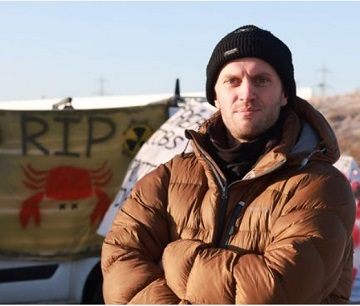
Angry fishermen stage protest at Tees dredging plans including one who’s lost all his crew
Fishermen from Hartlepool, Redcar and Whitby who have seen their livelihoods “decimated” by the shellfish die-offs along the North-east coast joined the rally. Fishermen fear chemicals released by dredging work to develop the Teesside freeport are to blame for the die-offs. Joe Redfern, a fisherman and founder of Whitby’s lobster hatchery, said: “The freeport is a massive government agenda. We are all for the jobs and regeneration and want to see this part of the world flourish and prosper. “But if you are going to do a big dredging operation in the most toxic river in the whole country, take the sediment to landfill. Don’t dump it in the sea. >click to read< 13:06
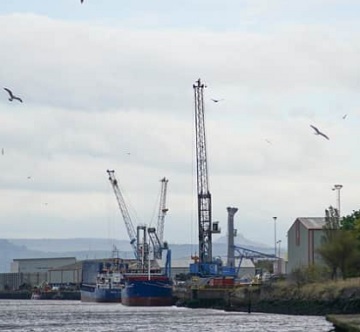
Questions over Teesside Freeport’s role when it comes to washed up fish – Andy Brown
A new deep water port is being created to service the offshore wind industry and new facilities are being established to build the turbines. In theory a bustling freeport will usher in a new age of industrial prosperity for a long-neglected part of the north with pesky regulations being swept away so that they don’t delay progress. There is, of course, much to be admired about the project. Unfortunately rushing to build without worrying too much about the consequences for others can also bring big problems. In this case those downsides are having a huge impact on the livelihoods of Yorkshire fishing communities and on the health of a huge area of our coastline. >click to read< 11:26
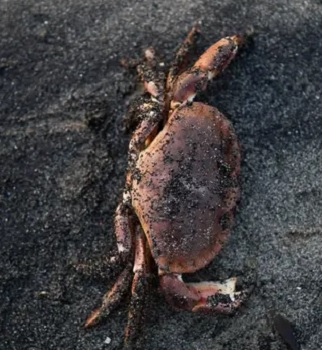
Panel to investigate crab and lobster deaths on north-east coast of England
The UK government is to set up an independent expert panel to investigate the cause of the mass die-offs of crabs and lobsters on the north-east coast of England, it has announced. The panel will consider the impact of dredging around a freeport development in Teesside and the presence of pyridine, a chemical pollutant, among other potential causes, the Department for Environment, Food and Rural Affairs (Defra) said. Mark Spencer, the fisheries minister, said on Tuesday: “I recognise fishing communities in the north-east want as thorough an assessment as possible into the crab and lobster deaths last year. >click to read< 07:35
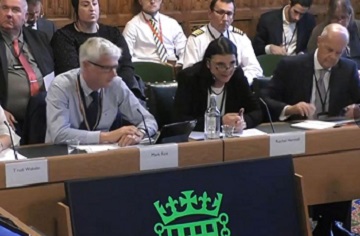
Experts quizzed over freeport, dredging and algal blooms as crab deaths on coast investigated
The deaths of thousands of sea creatures washed up on Teesside’s beaches are to be investigated in the House of Commons on Tuesday. Teesport operator PD Ports, the Environment Agency, a Whitby fishing association and academics will give evidence to MPs about the mass sea deaths. The Environment, Food and Rural Affairs select committee will hear from witnesses about the crustacean deaths after committee chair Conservative Sir Robert Goodwill, MP for Scarborough and Whitby, branded the situation “disturbing”. A Defra investigation earlier this year concluded the cause of the crab deaths to be a naturally occurring algal bloom but campaigners believe dredging has unearthed historical toxins – including a chemical called pyridine – which has caused the deaths. >click to read< 12:15
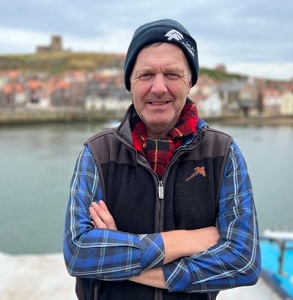
BBC documentary examines mass crab die off on Teesside coast and what has happened since
A TV documentary examining the impact of the mass crab and lobster die off on the Teesside coast is set to air. We Are England: Trouble at Sea looks at the events of last October and what has happened since. In it, film makers speak to fishermen, conservationists, the Tees port authority PD Ports and scientists to document the effects of the worrying occurrence, the subsequent investigation and the theories on its cause that have been an ongoing source of dispute. Teessiders will know huge piles of crabs, lobsters and shellfish began to wash up on beaches around the Redcar and Markse areas as well as Hartlepool a year ago before washing down the coast as far as Whitby. They were seen in piles that were waist deep in some places and most were dead or dying.>click to read< 21:32
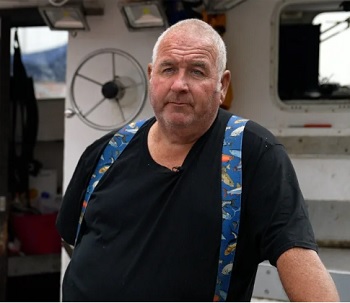
Impact of mass crab die-off ‘not as severe as feared’ but report criticised by fisherman
A monitoring report into the state of shellfish stocks along the Teesside coast following the mass crab and lobster die off has concluded the impact ‘was not as severe as originally feared.’ But a fisherman who works off the Hartlepool coast has hit out at the findings and claims it does not paint a true picture. However, Stan Rennie, who fishes from Hartlepool, has criticised the report. He says it includes the catches of all of the visiting super crabbers which work thousands of pots, and he says, it doesn’t take into account the fact that fishermen are going further afield to get out of the die-off areas. >click to read< 14:48
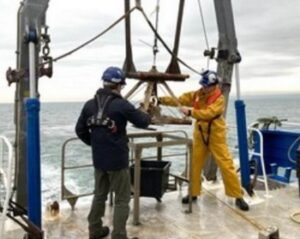
Deaths, accusations and a search for truth: The Teesside seaside die-off and where we are now
It is an issue that has caused a huge amount of concern right the way across Teesside and down into North Yorkshire. And it is simply not going away. Last October, residents living in the Marske area began to notice huge piles of dead and dying crabs, lobsters and shellfish washing up on the beach between the seaside town and neighbouring Saltburn – in places, the piles were waist deep. Fishing livelihoods have been decimated, protests have been mounted and the campaign for a re-investigation continues. Here’s what has happened so far as the issue continues to prove contentious. >click to read< 07:58
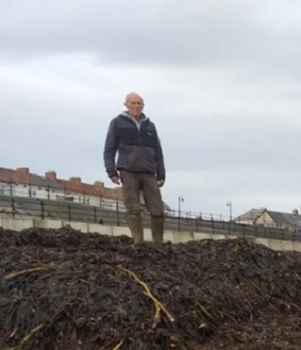
Killing joke: how Defra dismissed the Tees Bay die-off
It seems that no matter how often Defra and its partner agencies are exposed as inept over their handling of this crisis, their response is simply to deny the truth and carry on. The grim response of the Environment Agency (EA) to the mass crustacean die-off in Tees Bay moved up a gear last week. Where once they only patronised the inshore fishermen about the probable cause, they have now shown themselves prepared to do it on national TV. Friday 30 September Channel 4 News featured the ongoing tragedy and, in the process, interviewed Hartlepool fisher, Stan Rennie. Video link, >click to read< For more about this, >click here< 07:52
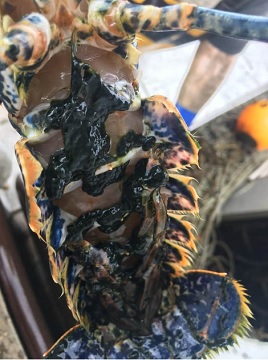
Biologist’s concern as lobster eggs ‘turn to slime’ off Yorkshire coast
Joe Redfern, manager of Whitby Lobster Hatchery, said stress may have caused the lobsters to release eggs prematurely but “but nobody seems to really have a definite answer”. “It’s not something I’ve seen before. It’s not like anything any of the fishermen have seen before, which is concerning,” he said. Samples have been sent to the Centre for Environment, Fisheries and Aquaculture for analysis, after the eggs were found in Whitby and Hartlepool. It comes almost a year after dead lobsters and crabs began washing ashore in Yorkshire and the North East, but Mr Redfern said he does not want to jump to conclusions and claim there is any link to the mass die off until the analysis has been completed. >click to read< 10:27
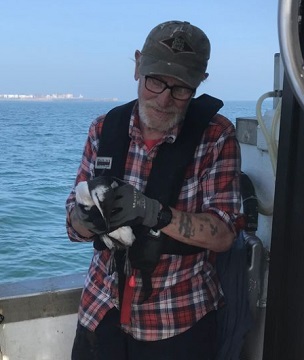
Yorkshire fisherman says his livelihood is being ‘devastated’ by mass deaths
James Cole, Chair of Whitby Commercial Fishing Association, has been talking about the serious impact the crisis has had on the fishing industry. He said: “It has had a devastating effect on the turnover of shellfish from Whitby and Hartlepool as well.” One particular feature of the crisis has been the lack of brown crabs which have been “absolutely devastated” in number. Velvet Crabs, which Mr Cole says are a food source for many animals which live close to the shore have been “more or less wiped out on the shore grounds”. The government has said the mass deaths were caused by a “naturally occurring harmful algal bloom”,,, >click to read< 10:35
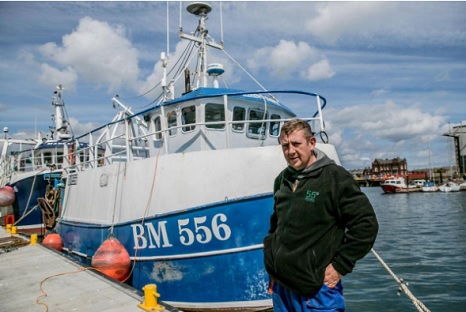
Fishermen launch legal action over North East crustation deaths
Fishermen along the North East coast have told of taking up new jobs amid a fishing crisis which has threatened their livelihoods and seen dead crustaceans wash up along the shoreline. Paul Graves, a lifelong fisherman off the Teesside and North Yorkshire coast, has taken up extra jobs over the summer to earn a living while his fishing boat is tied up in Hartlepool Mr Graves, like many other fishermen in the area, have grown frustrated by a marine life crisis which has seen hundreds of dead crustaceans wash ashore along the coast. For Paul, he’s contemplated selling his boat, owned by his family for years, due to the uncertain future. “I tied the boat up and went and did seven weeks work for a cable company,” he said. photos, >click to read< 15:49
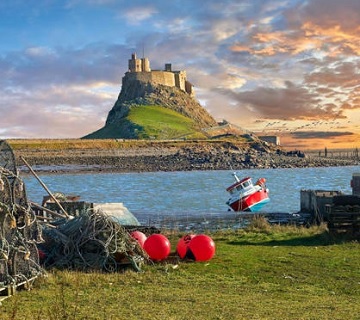
Whitehall fishing ban would ‘rip heart’ out of Holy Island, residents warn
For centuries, fishermen have been the lifeblood of the tiny Holy Island of Lindisfarne off the coast of Northumberland. But red tape from Westminster now threatens to kill off the profession and potentially the entire community, as officials propose banning fishing as part of a drive to rewild the sea. The Department of Food, Environment and Rural Affairs is consulting on designating the seas to the north of the island, a highly protected marine area, which would outlaw the crab and lobster potters who set sail from the island in the early hours. Fishing is the best-paid job on the island, and fishermen make up around 10 per cent of the population. If they were forced to move for work, they would take their families with them. At least three of these families include fully trained first responders who make up 50 per cent of the coastguard team, and it is said the 999 responses could not function without them. >click to read< 18:50
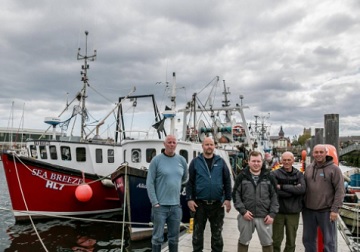
‘On its knees’ – Public meeting to look at how to support Hartlepool’s fishing industry
Councillors unanimously backed the move at the latest Hartlepool full council meeting, pledging to do all they can to support the sector after the mass deaths of crabs and lobsters in the area. The motion was raised by Labour’s Cllr Rachel Creevy, who highlighted how the region’s fishing industry has been decimated since the issue first occurred in autumn 2021. A Hartlepool fisherman invited to speak at the meeting said the industry is “part of their heritage” and their “lifetime’s work”. But they are now “desperate” with the “ecosystem wiped out”. >click to read< 10:55
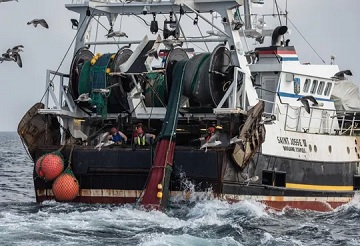
European parliament votes to ban ‘fly shooting’ fishing in part of Channel
While the European parliament does not have the power to ban the fishing method, MEPs said the vote on Tuesday sent an important message to decision-makers about the impact of fly-shooting on coastal fishing communities. The vote on an amendment to the common fisheries policy, involving access to territorial waters, will now be considered by the European Commission, the parliament and EU member states. Last year the UK was accused of allowing vessels using the fishing method “unfettered access” to the Channel without proper assessment of the impact on fish, the seabed or the livelihoods of coastal communities. >click to read< 15:12
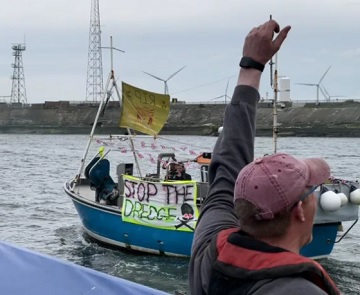
Government accused of ‘cover up’ over Teesside mass crab deaths
But Defra has insisted joint investigations into the deaths were thorough. Unrest, debate and protests over huge piles of dead crustaceans on Teesside’s coastline have rumbled on since problems first started last autumn at Seaton Carew, South Gare, Redcar, Marske and Saltburn. An algal bloom was deemed to be the likely culprit by a Defra-led study. But this was countered by an independent report by Tim Deere-Jones after he was commissioned by those concerned in the fishing industry. High levels of a chemical pyridine were noted by Mr Deere-Jones’s report. Mr Deere-Jones’ report also said algal blooms did not occur naturally in our coastal waters in October because the temperatures were too low. >click to read< 10:35
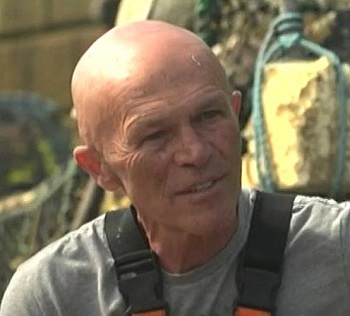
Hartlepool fishermen fear for future after crab deaths
Mass wash-ups were first reported in October with the government saying a natural algal bloom was to blame. Campaigners and fishermen disputed that and instead cited the dumping of dredged materials from the River Tees, which was “ruled out” by officials. Fisherman Paul Widdowfield, from Hartlepool, said he had caught “nothing at all” since October. Crab fisherman Stan Rennie said his family had fished the waters off Hartlepool for hundreds of years but he feared that would be “lost” with him. “We don’t know how the eco-system can come back,” Mr Rennie said. >click to read< 9:34
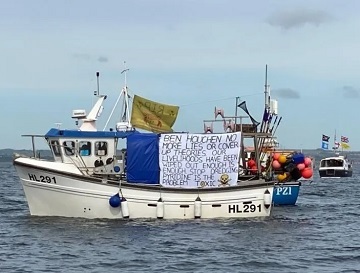
Troubled waters: the forces behind the death of the Tees
The Tees Estuary is dying. Its demise the result of widespread contamination on the one hand, and a wilful mishandling of information on the other. There was mass crustacean die-off in September/October 2021, and there has been a resurgence of this in recent weeks. We have also received numerous reports of deaths of seal pups as well as porpoise. Those seal pups that have survived are seriously underweight. Dead crab and lobster have been washing up on beaches again. Razor clams that inhabit the shallow waters of estuary beaches are also reported to be affected. And the official response to these sobering facts currently appears to be a mixture of indifference, belligerence and denial. >click to read< 08:11

Fishermen from across North East and Yorkshire in boat protest over mass shellfish deaths
Fishermen have held a protest on Teesside over the ongoing deaths of crabs and lobsters which they say is decimating their industry. Government scientists say natural algae in the water is responsible, but protestors want proof that recent dredging in the North Sea has not also had an impact in creating what they are calling a “dead zone”. Thirty fishing boats from Whitby, Redcar and Hartlepool sailed to South Gare to meet protestors on land to demonstrate about the continuing crisis. >click to read< 08:59

Mysterious killer continues to wipe out North East sea life
Fishing has long been a key part of Teesside’s proud heritage, but locals fear their livelihoods could be wiped out due to a devastating destruction of sea life. “There’s something going into their system that’s killing them and it’s going up and down the coast and nobody is answering our questions,” says lifelong fisherman Paul Graves. “We’ve done this all our life; we know what’s happening and we know when it’s not right.” >click to read< 09:32
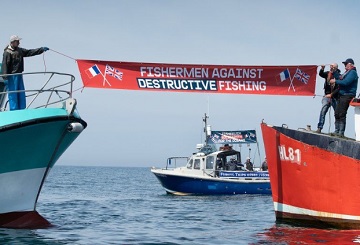
Channel fishermen protest to ban supertrawlers, fly-shooters
Fishermen from the UK and France have met in the English Channel to protest against industrial fishing practices. Boats from Dover, Rye, Newhaven and Boulogne-sur-mer gathered in the Bassurelle Sandbank marine protected area. They called for politicians to ban supertrawlers and fly-shooting from protected Channel waters. The Department for Environment, Food and Rural Affairs (Defra) said vessels must follow UK sustainability rules. >click to read< 12:33
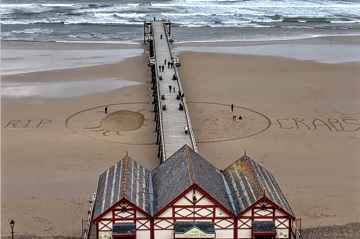
‘RIP CRABS’: Dead crustaceans dumped on London street in protest of deaths
Protestors have dumped piles of dead and rotting crabs on a London street demanding more action over the mass crustacean deaths along the Teesside coast. The strange occurrence was first noted six months ago when huge piles of dead and dying creatures started to wash up on the beaches at Redcar, Markse and Saltburn and north to Seaton Carew. An image was also etched into the sand at Saltburn beach on Tuesday by local people with a message that read ‘RIP crabs’. A government enquiry into the incident blamed an algal bloom for the crustacean deaths which were first noted last October. It ruled out pollution, dredging activity on the Tees and other causes,,, >click to read< 07:50
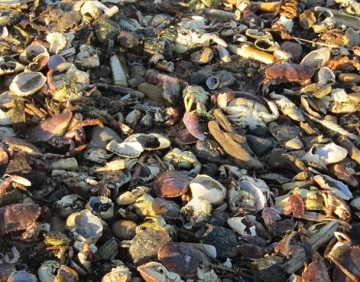
Yorkshire crab and lobster deaths: Government closes investigation for second time
The North Sea around the Tees Estuary has been affected by the issue as far south as Staithes and Whitby since last autumn, when large numbers of dead crustaceans washed up on beaches. An investigation was launched and after causes such as pollution, disease and undersea cable disturbance were ruled out, it was eventually announced that toxic algae was responsible. Yet fishermen are still reporting poor catches,,, >click to read< 11:29






